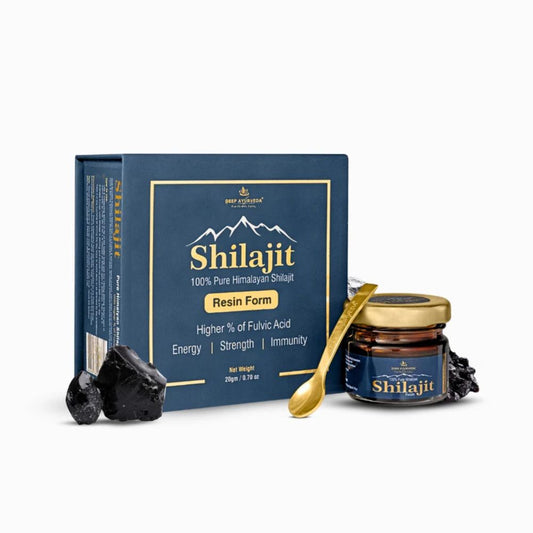Introduction
When people think about nutrition, the focus often falls on protein, fats, and carbohydrates — but there’s one essential nutrient that doesn’t get as much attention: fibre. Despite being overlooked, fibre plays a crucial role in digestion, heart health, blood sugar balance, and even weight management. Unfortunately, many people consume far less than the recommended daily intake, which can lead to common health concerns like constipation, sluggish metabolism, and poor gut health.
At Deep Ayurveda Australia, we understand that small, practical changes to diet can have a big impact on overall wellness. If you’re unsure how much fibre you’re getting or how to incorporate it effectively into your lifestyle, booking a online consultation with Dr. Baldeep Kaur can give you a personalised plan tailored to your unique needs.
What is Fibre?

Fibre is a type of carbohydrate found in plant-based foods that the body cannot fully digest. Unlike proteins or fats that break down into energy, fibre moves through the digestive system largely intact, supporting various vital processes along the way.
There are two main types of dietary fibre:
-
Soluble Fibre: Dissolves in water to form a gel-like substance. It helps lower cholesterol and regulate blood sugar.
-
Examples: oats, apples, beans, carrots.
-
-
Insoluble Fibre: Adds bulk to stools, supporting regular bowel movements and preventing constipation.
-
Examples: whole grains, nuts, cauliflower, potatoes.
-
Most foods contain a mix of both types, making it important to eat a variety of fibre-rich ingredients daily.
Why Fibre is Important for Everyday Nutrition

1. Digestive Health
Fibre keeps your digestive system running smoothly by preventing constipation and promoting regularity. It also supports a healthy gut environment by feeding beneficial bacteria.
2. Weight Management
High-fibre foods are more filling, which helps reduce overeating and unnecessary snacking. This makes fibre an excellent ally for anyone aiming to maintain or lose weight naturally.
3. Heart Health
Soluble fibre can help lower levels of LDL (“bad”) cholesterol, which in turn reduces the risk of heart disease. Whole grains, fruits, and legumes are especially beneficial here.
4. Blood Sugar Control
Because fibre slows the absorption of sugar into the bloodstream, it helps prevent blood sugar spikes and crashes. This is particularly valuable for people managing diabetes or insulin resistance.
5. Gut Microbiome Support
Fibre acts as a “prebiotic,” feeding the healthy bacteria in your gut that support digestion, immunity, and even mental well-being.
How Much Fibre Do You Need?

Health authorities generally recommend:
-
Women: 25–28 grams per day.
-
Men: 30–38 grams per day.
However, the average Australian adult consumes only about 20 grams daily — well below optimal levels. This fibre gap is a major factor behind common digestive and lifestyle-related health problems.
Best Sources of Fibre
You don’t need complicated supplements to get enough fibre — just focus on real, whole foods. Some of the best sources include:
-
Fruits: pears, apples, oranges, bananas, and berries.
-
Vegetables: broccoli, carrots, spinach, sweet potatoes.
-
Whole Grains: oats, barley, brown rice, whole-wheat bread.
-
Legumes: chickpeas, lentils, kidney beans, black beans.
-
Nuts & Seeds: almonds, chia seeds, flaxseeds, sunflower seeds.
Adding even one or two of these foods into each meal can dramatically boost your daily intake.
Tips to Increase Fibre Intake Easily

-
Swap white rice for brown rice or quinoa.
-
Replace white bread with whole-grain bread.
-
Snack on fruit instead of processed packaged foods.
-
Add a handful of nuts or seeds to salads and smoothies.
-
Include beans or lentils in soups, curries, or pasta sauces.
-
Drink plenty of water, as fibre works best when paired with hydration.
Common Myths About Fibre

-
“Only older people need more fibre.”
→ Everyone benefits from a fibre-rich diet, regardless of age. -
“Fibre supplements are enough.”
→ While supplements may help in some cases, whole foods offer fibre along with vitamins, minerals, and antioxidants that pills can’t replicate. -
“The more fibre, the better.”
→ Too much fibre, especially introduced suddenly, can cause bloating or discomfort. Balance is key.
When to Be Cautious
If you’re new to high-fibre eating, introduce it gradually to avoid bloating or cramping. Always drink enough water to support fibre’s function in digestion. People with specific digestive conditions (like IBS or Crohn’s disease) should seek professional advice before making big dietary changes.
Conclusion
Fibre may not be glamorous, but it is absolutely essential for everyday health. From improving digestion to reducing disease risk, it plays a role in almost every aspect of nutrition and well-being. Thankfully, getting enough fibre doesn’t require dramatic changes — just small, consistent steps like swapping refined grains for whole grains or adding vegetables to every meal.
If you’re ready to take charge of your diet and need guidance tailored to your body type, lifestyle, and health concerns, consider booking a consultation with Dr. Baldeep Kaur at Deep Ayurveda Australia. With expert advice, you can build a nutrition plan that not only meets your fibre needs but also supports your overall wellness journey.






